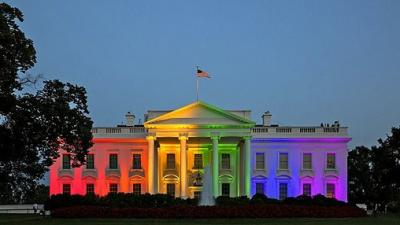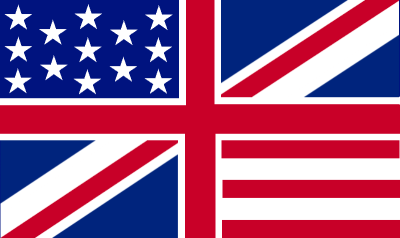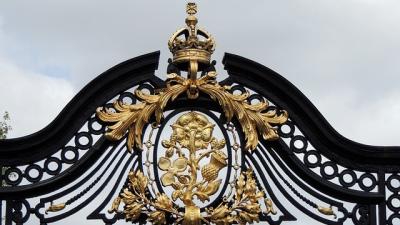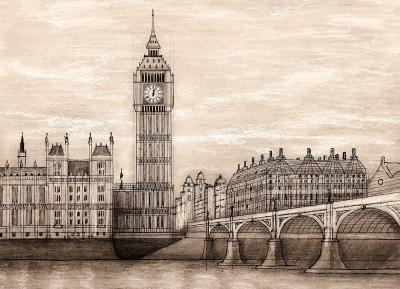There is a popular historical debate about when Rome’s decadence took it so low that it was thereafter unable to recover its former secular glory.
Was it when birth rates of the Senatorial class fell to the point that they could not reproduce themselves (that is, without the mass adult adoption which they practiced)? Was it the advent of the new religion, based not on the will of the powerful or the powerful’s gods, but on the ‘poor in spirit’, meek, and persecuted, who were then inheriting the Roman earth? Was it earlier, when the Republic evolved into the Empire, and gradually lost its ability to hold the provinces to a Roman pattern? Or was it poisoning caused by too much water drawn through lead pipes? One of these, or some combination of them plus others, adversely affected Rome’s political health. But there was one day, now lost to history, after which it was only evermore decline and fall.
Although far shorter lived, the American empire’s permanent decline might be dated to 26 June 2015. You might remember that as the day of the ruling in Obergefell v. Hodges, which forbade civil marriage to persist as an exclusively opposite-sex institution. But the great descent into third-world politics on that day was not directly caused by the narrow, 5-4 victory at the high court.
It was, rather, President Obama’s decision to have the White House lit up that evening in the colours of the then-current rainbow flag. Barack Obama was not only being disingenuous. He had run for the high office twice in opposition to ‘same sex marriage’ before he ‘evolved’ on the issue. He was also playing the part of the sore winner. The Supreme Court was divided on the issue, five in favour and four against. The nation was also divided on the issue, but in the reverse direction, and likely by a greater margin. The President, who is not a member of the judiciary but the head of the executive branch, was in effect rubbing the judicial victory in the face of at least half of the nation’s adult citizens. By emblazoning the White House with the colours of the rainbow flag, he was marking the territory as conquered, and ‘queering the space’, as it were.
The politics of domination that Donald Trump would later practice – as candidate and as president – was a less sophisticated and ironic evolution of President Obama’s trend-setting style. One does not win and then offer conciliation, broaden the tent, invite the losers to the Table of Brotherhood. One wins and then condemns those who lost as losers, as enemies with discredited ideas, as less evolved.
The descent is then from a politics of aspiration and inclusion of as many as possible (Obama’s campaign promise), to one of symbolic exclusion of all but a morally-enlightened few. Obama’s chosen symbol solidified the novel exclusion of the majority on 26 June 2015, when it was projected onto the façade of the White House, the home not only of the Chief Executive but also of the First Citizen. For, there is no colour in the rainbow flag to represent descriptively normal persons, who as a matter of simple logic or statistics (i.e., either the working or dictionary definitions of ‘normal’), make up the majority of any human society ever known.
Since 2015, the rainbow flag has evolved by adding colours, even as the moral in-crowd has been thinned. Now only those who have evolved both on trans issues and on racial politics remain plausible. The new winners have excluded the new losers, even inter alia prominent radical feminists and certain black scholars for not having evolving quickly enough.
Readers might recognise this way of doing politics as the tendency of both the revolutionary and the reactionary politics of so many ‘developing’ countries. It should go without saying that on the US Right, a similar trend has been witnessed, mutatis mutandis – with a narrowing of permissible positions and the politics of domination. But the final step that took the US – perhaps irrevocably – into a politics that is more like Brazil’s or Nigeria’s than like that of Denmark or France, was taken by Obama as President.
Developed countries, until recently, have been saved from third-world politics, in part because of their commitment to a healthy liberalism. That liberalism, for all its faults, was at least allergic to identity politics, and promoted broad participation of all citizens, chiefly and precisely as citizens of their nation state. The replacement of a grand narrative of participation in a liberal order with as many special interest narratives as can fit onto a flag will not go unnoticed even by the formerly liberal-minded majority. But their notice will scarcely matter. In the US, they are projected to become the minority in the coming generation or two. If the current ‘historical reckoning’ continues apace, they are also likely to become an increasingly embattled minority, continuously blamed for all failure, inequality, or historical mistreatment of the former minority populations, even as the actual power of the former majority diminishes. Both confusion and resentment will grow. In this re-tribalisation of society, politics will have to become a game of ‘getting what I can for my own kind’, or one will get nothing at all. Hence, any special treatment set up today for this or that group, could set precedent for another special interest to use it for themselves tomorrow. Eventually, if this trend becomes universal, the US might not only have a third-world politics of domination, but also something akin to South African society circa 1980, both separate and unequal.
Commitment to the best ideals of America (pronouns: she, her, mine) from her history could certainly save her from this fate, such as, equality under the law, forgiveness, and tolerance. But those ideals, and many others, whether traditional or liberal, are now called ‘white supremacist’ by the leading lights of the moral in-group – meaning, those who now hold those ideals are as guilty of racism as those who once championed them. On the street, this ‘anti-racist’ politics of domination has not routinely turned violent against random purported representatives of the historical majority.
However, their representations in statues of ‘dead white men’ have fared less well. Over the past few years, statues have been defaced, toppled, beheaded, defecated on, and set alight. First it was those associated with the Confederacy, but it soon became anyone not suitably morally up to date on some issue. Many were toppled not despite but because of their commitment to the foundational ideals of the United States of America, rather than to those of, say, the ‘new’ founding date of 1619, when the first Africans arrived and were enslaved in British Virginia. In 2019, the ‘1619 Project’ of the New York Times presented a series of long-form opinion journalism posing as historical revisionism. This gave a stamp of approval to the iconoclasm. In one of the most surreal episodes of this protracted convulsion, Boston’s statue of Abraham Lincoln as Emancipator, a statue originally paid for by subscription donations from former slaves, and erected in 1879, was retired to the dustbin of history.
Like the rainbow flag on the White House, the ongoing toppling has also been symbolic, namely, of the impossibility of hearing the great ideals of these men through the screams endlessly recounting their – often real enough – sins. But when the sinner is thrown to the outer darkness so are his good words. Thus, with each statue of Jefferson, so goes ‘all men are created equal’. With Lincoln’s toppled head, so goes ‘with malice toward none’. And with Martin Luther King, Jr, whose representations will soon enough be toppled for his being unevolved on, say, women or gays, so goes the Dream, meaning, ‘The Table of Brotherhood.’
Instead of the goal of peaceful coexistence under law (Jefferson), of tolerance amidst great differences (Lincoln), where we learn to respect one another at least enough to break bread together (MLK), each can instead look forward to being fed one’s preferred fare individually from one’s own community’s government-subsidised fast food joint, after an exhausting day of pulling down things one could have never built oneself.
Read also
Anglospherical: The Region Report on the Anglosphere - January 2023
National politics in the US has become crasser over the past six decades, and often the Republicans have been to blame for pushing the envelope. Richard Nixon’s paranoia forcing his resignation from the presidency or Newt Gingrich’s bellicose tenure as Speaker of the House (resulting also in a forced resignation) could serve as case-in-point.
Vernon Rogers
Anglospherical: The Region Report on the Anglosphere
A slow-motion transfer of power would seem to be afoot in the Anglosphere, moving from a heritage ruling class of white men and women to the children of successful Indian immigrants. The US Vice President, Mrs Kamala Harris, is Indian on one side.
Vernon Rogers
The Heir to the Spares
In my previous Region Report I complained about the Yanks’ faux republicanism (see: LINK). In Blighty the problem is the reverse: false modesty, pretended irrelevance, and the snobby casualness of insisting on calling everyone by his first name, as if one could presume intimacy with anyone, anywhere, high or low, common or royal.












Comments (0)